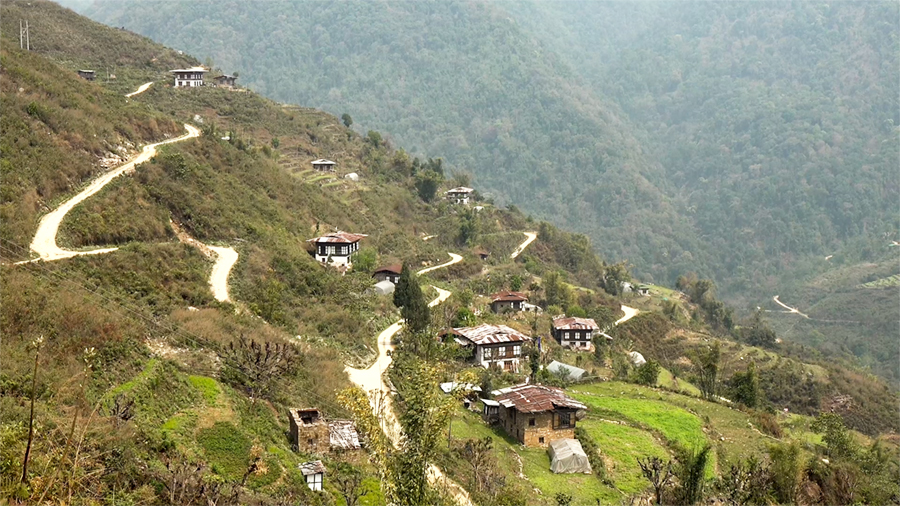
In Maedtekha Gewog, Chhukha, 80 per cent of households have adopted biogas as a sustainable alternative to traditional LPG cylinders. This environmentally friendly solution addresses energy needs and tackles challenges faced in rural areas where accessing LPG is a significant hurdle.

Maedtekha Gewog, located approximately 100 kilometres from Phuentshogling, is not easily accessible.
During summers, multiple roadblocks cut off access to the villages in the gewog, making it difficult for its residents to obtain LPG cylinders.
Recognising these challenges, villagers found biogas a convenient and inexpensive alternative to LPG cylinders.
However, gewog officials say there were only a few adopters when biogas was initially introduced.
“Biogas is incredibly helpful for us because we do not have access to LPG cylinders here. We have to obtain the cylinders from Phuentshogling, which is far away, and the transportation costs are substantial. It is a 100 per cent beneficial solution for people like us,” said Kami, a resident of Maedtekha Gewog.
“There is a significant difference between using LPG cylinders and biogas. With biogas, we simply need to ensure that the plant is prepared with cow dung and that everything functions smoothly. We utilise biogas daily, reserving the LPG cylinder for special occasions or rituals at home. Additionally, biogas eliminates the need for collecting firewood,” said Rinchen Lhamo, another resident of Maedtekha Gewog.
The Maedtekha Gewog officials said biogas can have significant socio-economic benefits, like enhancement of livelihoods and reduction of dependency on traditional fuels like firewood.
Import of LPG cylinders can also be reduced. Despite the benefits, the easy unavailability of accessories required to maintain the biogas plants remains a major challenge.
“We have no idea where to obtain the necessary parts and accessories. During the initial setup of the plant, the government provided us with all the required materials. Therefore, if the Gewog can coordinate this, it would greatly assist us,” said Namgay, also a resident of Maedtekha Gewog.
Considering the challenge, the gewog administration is planning to provide biogas plant parts and accessories to people in the 13th Five-Year Plan.”
“When there are pipe leakages and other issues, obtaining the necessary accessories becomes difficult. Therefore, recognising these challenges, the gewog is planning to purchase these items and provide them to people on a cost-sharing basis,” said Passang Tshering, Maedtekha Gup.
The gup added that the gewog aims to achieve 100 per cent biogas adoption among all households in the gewog.
Currently, there are over 130 households in Maedtekha Gewog.
Kinley Dem, Chhukha
Edited by Sherub Dorji








